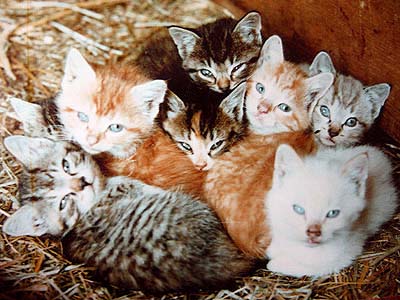
It’s blowing around here like the Sahara, about 90 degrees and hot, hot winds that make my fur go the wrong way, but at least we have, finally, SUMMER. There are actually tomatoes on the vines and I saw three red ones this morning, which made us all very happy since the basil was crying out for a nice caprese (mozzarella, tomato and basil, as most of the world knows by now, lying under a lovely blanket of extra virgin olive oil and a dash of salt) and at any time in summer past we would have been putting up tomato sauce by the gallons to freeze for winter.
Not this year.
The wine growers around here are worried, too, because they have half the grapes they usually harvest because with the winds and heat, the little new vines on the old solid ones were just whipped off and sailed away. Maybe they planted themselves elsewhere, who knows, but the subject of weather has become a major topic around the world it seems.
Who can possibly say that the weather is just as it used to be? Not so. And we will have colder winters and hotter summers, “weather” we like it or not! I sure feel the difference because I’m hot all day long in my fur coat even though we have air conditioning.
Papa saw something really interesting about weather in the Natural History Museum the other day: temperature affects crocodiles’ breeding and if their eggs are incubated at over 32 degrees, a male is born, and if the eggs are incubated at less than 30 degrees, those little snappy-toothed reptiles are female. If crocs’ eggs are incubated between 32 and 30 degrees, then the eggs would hatch male or female, randomly. So hot weather would precipitate the birth of more males.
A speculative question is that perhaps as the earth heated up millions of years ago to over 32 degrees, then perhaps only male dinosaurs were born, which could have caused the dinosaurs’ extinction.
It’s just a possible, but an interesting one.
I’m always wondering how so many different kitties are born from one mama—sometimes all different colors, shapes and sizes. Well, to NOT die out, kitties often mate with more than one male. A kitty who mates only once will only get pregnant only 50% of the time, so a kitty mates several times to ensure a litter, and the litter can contain kittens from a variety of papas.
One thing for sure: kitties don’t rely on temperature to keep themselves on the genetic map!















This sounds a perfectly good reason for dinosaurs to have died out. If it hadn’t been for dinosaurs we would have no birds though, nor mice. So we reserve a special respect for those pea brained reptiles.
Felines are so obviously at the top of the evolutionary tree with our reproductive cast-the-net-wide approach. We don’t think apes will last much longer, they are so self destructive.
Those kittens look like they mean business, especially the ginger one, middle of the back row.